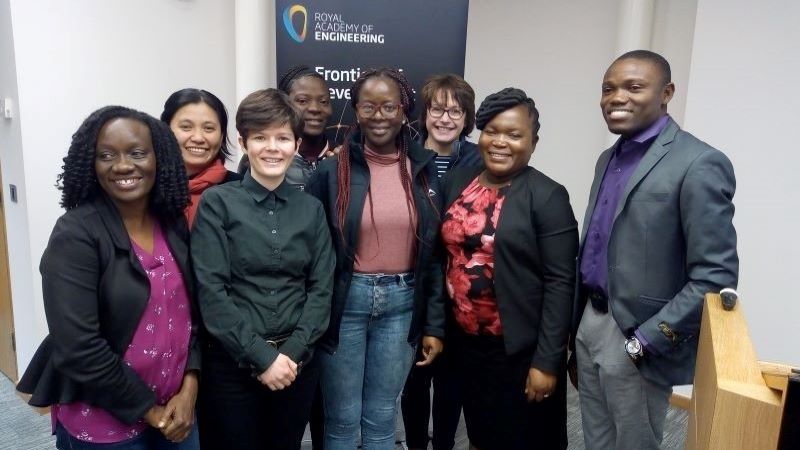Published:

Dr Maïwenn Kersaudy-Kerhoas has been awarded seed funding from the prestigious Frontiers of Development programme, run on behalf of the UK learned societies by the Royal Academy of Engineering (RAEng).
Frontiers of Development draws upon the objectives of the Global Challenges Research Fund (GCRF), a major UK investment in challenge-led research to address the needs of developing countries.
The announcement followed the third international workshop held last month at Wellcome Genome Campus outside Cambridge, which focused on Inclusivity and Wellbeing in the First 1000 Days of Life.
Neonatal sepsis in Sub-Saharan Africa results in an annual economic burden ranging from $10 billion to $469 billion with the mortality rate, due to neonatal sepsis, close to 30% in some African countries. Current diagnostic technologies involve long and laborious blood, CSF or urine cultures, which provide answers only after broad-spectrum antibiotics are administered. Microbial cell-free DNA, released from lysed pathogens in the infected human circulation, has been shown to have high sensitivity for detection of pathogens.
The funding, to be awarded in July, will allow Dr Kersaudy-Kerhoas to bring together a consortium of international experts in the field of neonatal and maternal sepsis, portable sequencing, and microfluidic instrumentation. The objective is to develop robust neonatal sepsis diagnostic assays based on circulating microbial DNA, and that are suitable for the Sub-Saharan African environment.
The team led by Dr Kersaudy-Kerhoas, which will gather in Nigeria this August, involves representatives from the UK, Nigeria, Malawi, Uganda, Botswana and Sierra Leone including; Professor Nick Loman, from University of Birmingham, who established real-time genomic surveillance of Ebola using portable sequencing, in Guinea during the epidemic, and Queen Dube, a paediatrician at Queen Elizabeth Central Hospital (QECH) in Malawi and Principal Investigator on NEST360, a multi-institutional initiative to halve neonatal mortality in Africa. Queen Dube was one of four finalists in the MacArthur Foundation's $100 million 2017 grant competition, 100&Change.
Dr Kersaudy-Kerhoas said: “The Frontiers of Development was a wonderful and unique opportunity to build a network of international experts to tackle GCRF challenges. I met truly inspirational professionals from all continents and I would certainly encourage my colleagues to take the opportunity to apply for the relevant GCRF funding opportunities.”
Professor Pender, Deputy Principal for Research and Innovation at Heriot-Watt University said: “Maïwenn is an exceptional research talent and I am delighted that her work will contribute to addressing such an important aspect of improving health and opportunity in Sub-Saharan Africa."